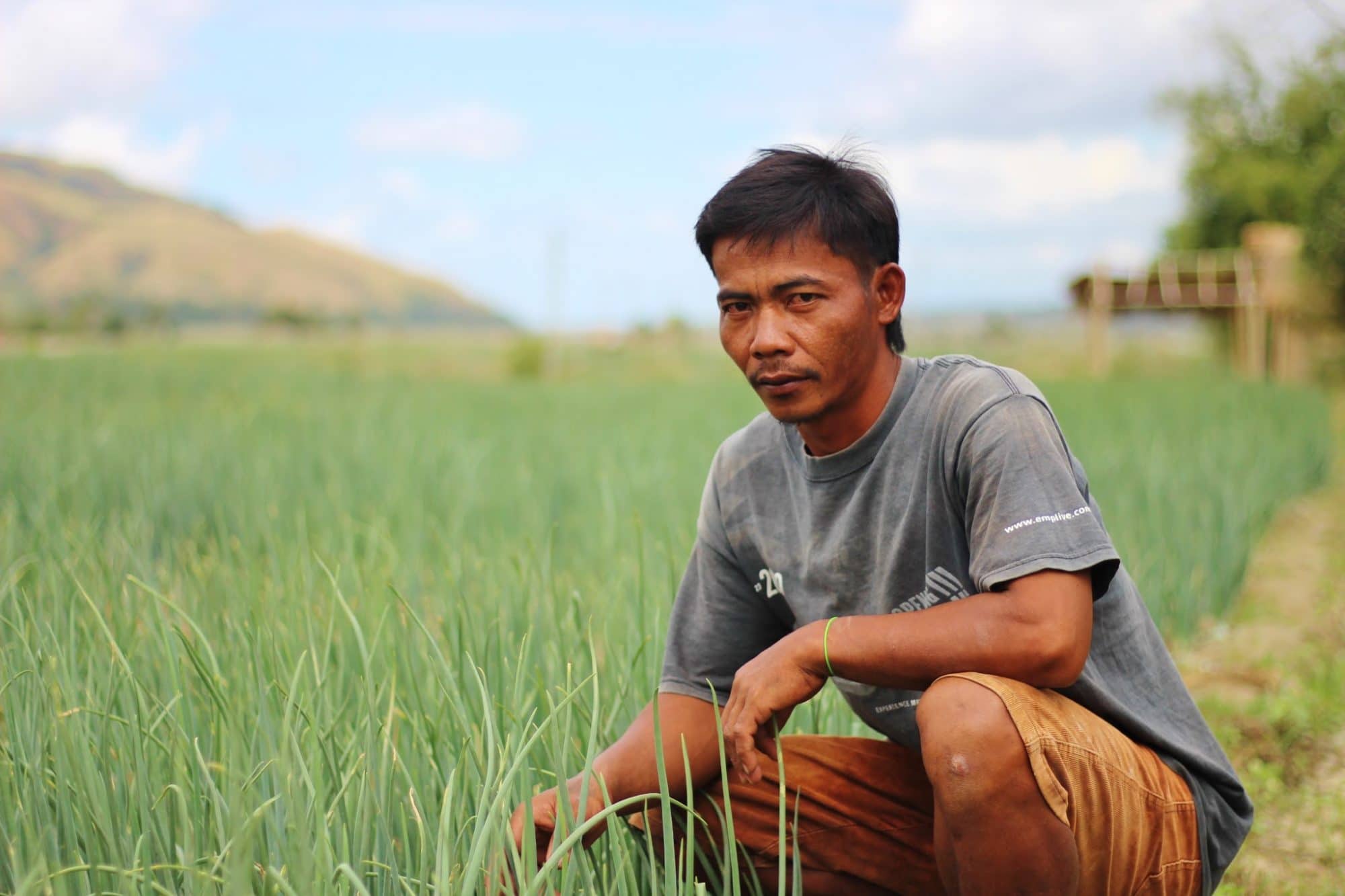Filipino Farmers Recover from Typhoon Koppu Amidst El Niño
The Philippines is one of the most disaster prone countries in the world. Filipino farmers are often the most affected by typhoons and dry spells, making it hard to sustain their livelihoods.
In November 2015, the province of Nueva Ecija seemed like a vast sea. Rice and high value crops were instantly destroyed as typhoon Koppu brought heavy winds and intense rains that caused widespread flooding across Central Luzon region.
“We were about to harvest rice, onions, cabbage and string beans. But we lost everything. The farm lands were flooded and covered with rocks coming from the mountains so we obviously struggled to replant.”
Mario, 49-year-old rice & onion farmer from Gabaldon, Nueva Ecija.
Mario is one of the three million individuals affected by typhoon Koppu, most of them are relying on agriculture and livestock as their primary source of income. Koppu was described as “the worst storm that hit the Philippines in 2015” by the National Disaster Risk Reduction and Management Council.
A few months after the typhoon, the farmers had to face another challenge when they started bear the brunt of the impacts of the strongest El Niño on record. But people were determined to not give up.
“Farmers in my village worked hard to clear the lands and started planting onions again. Though huge part of the farm lands would take time to be rehabilitated for planting, we managed to have a livelihood through the support we received,” Mario said.
Action Against Hunger (ACF), CARE and Save the Children have worked together in a Consortium to address the needs of the affected people by implementing a cash transfer programme in the region to help people to restore or kick start income generating activities. The programme is funded by the European Commission for Humanitarian Aid and Civil Protection department (ECHO).
Mario, who is raising his four children alone, is expecting to harvest onions next month. He said his earnings from the support would really help him cover his children’s school expenses.
The farmers are well aware of the possibility of experiencing relatively strong typhoons in the future aside from the El Niño they are dealing with right now.
Sessions on community risk assessment and basic disaster risk reduction concepts with community leaders and members were carried out by the NGOs to equip the cash transfer beneficiaries with ideas to mitigate risks to their livelihoods.
“The farmers didn’t give up even they are experiencing extreme heat. Farming has become part of their system. Most of them are casual farm labourers and do not own the land, but we witnessed how they strived hard to be able to restore their damaged farm lands. We closely worked with the farmers to keep their livelihoods sustainable.”
Athena Gepte, CARE International & NGO Consortium Coordinator of ECHO Project in the Philippines
About the project
The project “Support to Vulnerable Population Affected by Typhoon Koppu in Nueva Ecija” was implemented from December 2015 to March 2016 by the Consortium of INGOs: ACF International, CARE and Save the Children. The project is funded by the European Commission for Humanitarian Aid and Civil Protection department (ECHO). A total of 2,300 households have received cash assistance and undergone livelihood strategy planning and community risk assessment sessions.
